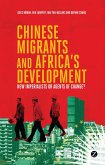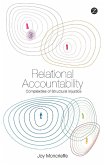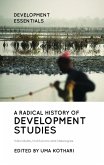Race, Racism and Development places racism and constructions of race at the centre of an exploration of the dominant discourses, structures and practices of development. Combining insights from postcolonial and race critical theory with a political economy framework, it puts forward provocative theoretical analyses of the relationships between development, race, capital, embodiment and resistance in historical and contemporary contexts. Exposing how race is central to development policies and practices relating to human rights, security, good governance, HIV/AIDS, population control, NGOs, visual representations and the role of diasporas in development, the book raises compelling questions about contemporary imperialism and the possibilities for transnational political solidarity.
Bitte wählen Sie Ihr Anliegen aus.
Rechnungen
Retourenschein anfordern
Bestellstatus
Storno









